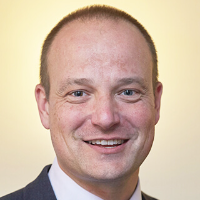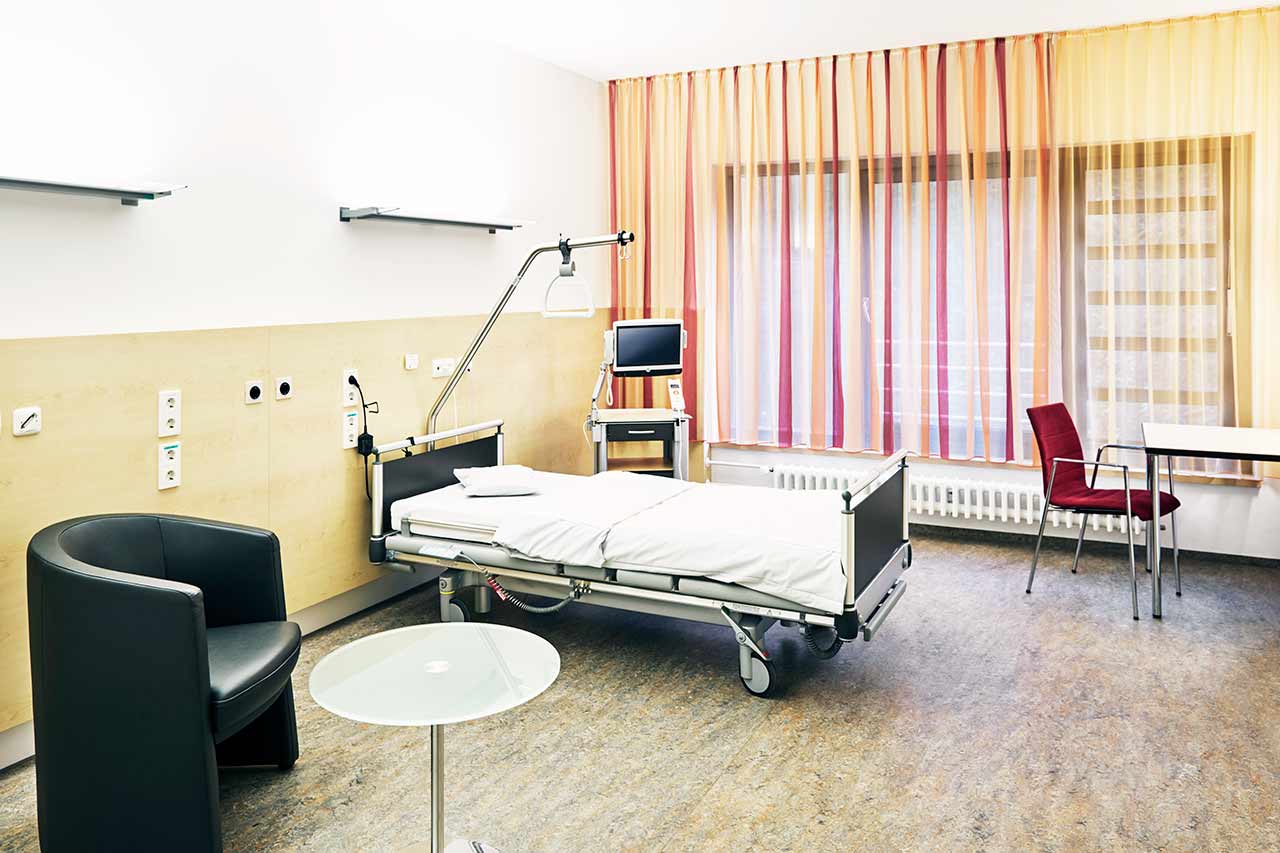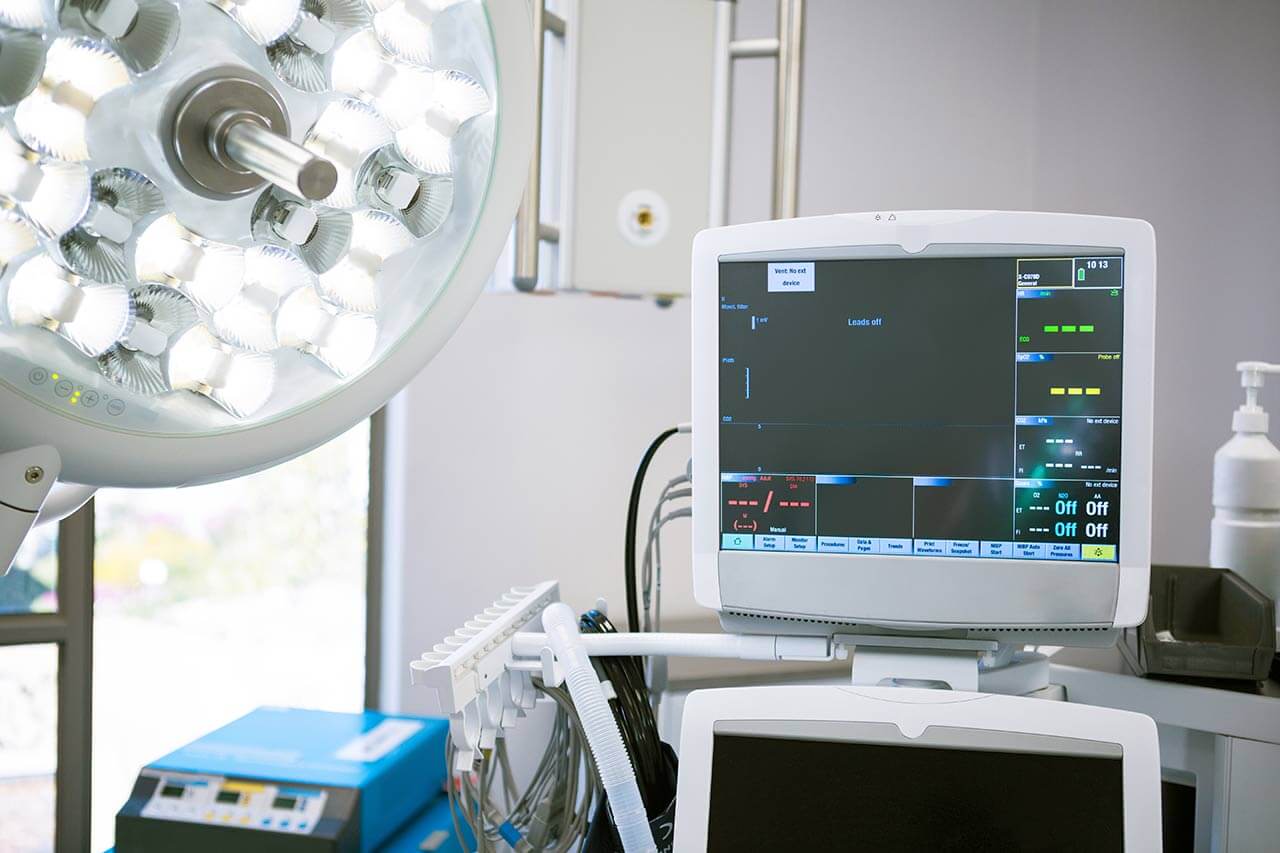
The program includes:
- Initial presentation in the clinic
- clinical history taking
- review of medical records
- physical examination
- laboratory tests:
- complete blood count
- general urine analysis
- biochemical analysis of blood
- inflammation markers (CRP, ESR)
- blood coagulation analysis (aPTT, PT, INR)
- hormone test (estradiol, progesterone, prolactin, DHEA-s, FSH, LH)
- gynecological examination.
- ultrasound examination: pelvis, abdomen, thyroid gland, breasts
- nursing services
- consultation of related specialists
- treatment by chief physician and all leading experts
- explanation of individual treatment plan
Required documents
- Medical records
Service
You may also book:
 BookingHealth Price from:
BookingHealth Price from:
About the department
The Department of Pediatric and Adolescent Medicine at the Hospital Oberberg Gummersbach offers the full range of diagnostic and therapeutic services for young patients. The specialists at the medical facility treat gastrointestinal infections, bronchial asthma, pneumonia, diabetes mellitus, diseases of the central nervous system, allergic diseases, thyroid pathologies, and heart disease. The department has an intensive care unit for newborns, including premature babies. The department has 35 beds. Many diagnostic and therapeutic procedures are performed on an outpatient basis. The health of young patients is in the safe hands of an experienced team of pediatricians who ensure that each child receives effective and, if possible, painless treatment. The comfort of the children is important to the specialists, so the department offers the opportunity for one of the parents to stay in the clinic with their child. The department also has a wonderful play area where a child can forget about the illness, meet peers, and watch exciting shows with the participation of animators. The department is headed by Dr. med. Roland Adelmann.
The department regularly treats young patients with various diseases, including bronchitis, pneumonia, bronchial asthma, appendicitis, tonsillitis, polyps, bone fractures, and other pathologies. As a rule, young children are accommodated in a patient room with one of their parents. Infectious diseases require partial isolation. Medical care is provided in accordance with current clinical protocols and the recommendations of professional societies.
The department has a neonatal intensive care unit, which is located in close proximity to the delivery rooms. This allows for quick emergency care in critical cases. There are 15 beds and a mother-and-child ward available here. The specialists from the neonatal intensive care unit perform a variety of tests for newborns, including screening for congenital heart defects, ultrasound scans to rule out hip dysplasia and kidney abnormalities, hearing screening, advanced biochemical tests to rule out metabolic disorders, etc. About 350 premature and newborn babies with congenital pathologies are treated in the intensive care unit every year. The specialists work closely with Level I Perinatal Centers in the cities of Leverkusen, Cologne, Bonn, and Siegen. Special attention is paid to the care of premature babies born before the 32nd week of pregnancy.
A major clinical focus of the department is pediatric cardiology. The medical facility performs all the necessary diagnostic tests to identify congenital heart defects, including ECG, echocardiography, 24-hour blood pressure monitoring, and others. An outpatient appointment without a hospital stay is usually sufficient for diagnostics. If a child is diagnosed with problems such as heart palpitations after sports workouts or high blood pressure, specialists offer additional procedures, such as long-term ECG monitoring and 24-hour blood pressure monitoring, to further assess the child's heart function.
The range of medical services provided by the department is complemented by medical care for young patients with acute and chronic neurological disorders. The department treats children aged 0 to 18 years. The department's specialists most commonly provide medical care for pathologies such as chronic headaches, epilepsy, movement disorders and paralysis, neuromuscular diseases, and mental development disorders. In most cases, children are diagnosed and treated on an outpatient basis. The treatment of neurological disorders in children involves the prescription of individually developed drug treatment regimens, physiotherapeutic treatment programs, including Vojta therapy and Bobath therapy, therapeutic exercises, massage, and other methods.
The specialty of the department's team of pediatric endocrinologists is providing medical care for young patients with type 1 and type 2 diabetes mellitus. Unfortunately, this endocrine disorder remains incurable, but the department's specialists have the professional skills and resources to compensate for diabetes mellitus. After confirming the diagnosis, the department's doctors recommend undergoing an initial course of treatment in an inpatient setting. A young patient is individually prescribed insulin therapy (the department has accumulated extensive experience in the field of pump insulin therapy) and/or taking glucose-lowering medications to normalize glucose levels. During consultations with the attending physician, the child and his or her parents receive detailed recommendations on proper nutrition for diabetes mellitus, daily routine, physical activity, and other important issues. Qualified psychologists also work with children and their parents.
The department's range of medical services includes the following:
- Diagnostics and treatment of general diseases in children and adolescents: bronchitis, pneumonia, bronchial asthma, fractures, and appendicitis
- Diagnostics and treatment of endocrine disorders with a special focus on diabetes mellitus types I and II, growth disorders, and thyroid diseases
- Diagnostics and treatment of heart disease with a special focus on congenital and acquired heart defects
- Diagnostics and treatment of diseases of the nervous system: chronic headaches, epilepsy, paralysis, movement disorders, and neuromuscular diseases
- Diagnostics and treatment of acute and chronic respiratory diseases: bronchial asthma and severe and chronic lung infections
- Diagnostics and treatment of allergic diseases: allergic rhinoconjunctivitis, atopic dermatitis, urticaria, and food allergies
- Medical care for premature and newborn babies in a specialized intensive care unit
- Other medical services
Curriculum vitae
Higher Education
- Since October 1990 Medical studies at the Faculty of Medicine at the University of Cologne.
- April 1994 First State Examination.
- April 1996 Second State Examination.
- April 1996 - April 1997 One-year practice in Pediatrics at the University Hospital Cologne.
- April 1997 Third State Examination.
- 1999 Doctoral thesis defense, Department of Pediatric and Adolescent Medicine, University Hospital Cologne. Subject: "Spiral computed tomography and high-resolution computed tomography in patients with cystic fibrosis."
Professional Career
- 1997 - 1999 Internship in Pediatrics, Hospital Oberberg Gummersbach.
- 1999 - 2002 Assistant Physician, Department of Pediatric and Adolescent Medicine, Hospital Oberberg Gummersbach.
- 2002 - 2003 Assistant Physician, Dr. Remmel's Private Pediatric Practice, Gummersbach.
- 2003 Board certification in Pediatric and Adolescent Medicine, Duesseldorf.
- 2004 - 2007 Permission to open Private Medical Practice (Pediatric and Adolescent Medicine) in Gummersbach.
- 2007 - 2008 Additional specialization in Neonatology, Research Fellow in the Department of Pediatric and Adolescent Medicine at the University Hospital Cologne.
- Since January 2009 Additional qualification in Pediatric Cardiology, Department of Pediatric Cardiology, University Hospital Cologne.
Memberships in Professional Societies
- German Society of Ultrasound in Medicine (DEGUM).
- Professional Association of Pediatricians in Germany (BVKJ).
Photo of the doctor: (c) Klinikum Oberberg GmbH
About hospital
The Hospital Oberberg Gummersbach is a medical complex that offers its patients top-class personalized care. The hospital was founded in 1985. Since then, it has earned an excellent reputation in the German medical arena and has gained vast experience in the provision of medical care to foreign patients. The Hospital Oberberg Gummersbach is an academic hospital of the University of Cologne, thanks to which doctors and professors at the medical center have the opportunity to participate in promising research projects of national and international significance. The hospital has 536 beds for patient stays. The medical team consists of more than 1,400 employees. Their main focus is always on the patients and their individual needs and wishes.
The hospital has 13 departments and 7 highly specialized centers. The hospital offers various fields of modern medicine, including general and abdominal surgery, thoracic surgery, oncology, hematology, gastroenterology, nephrology, neurology, orthopedics, traumatology, gynecology, mammology, radiation oncology, otolaryngology, and others. Diagnostic and treatment facilities, as well as operating rooms at the hospital, have state-of-the-art medical equipment, including devices for imaging tests, navigation systems, equipment for endoscopic and minimally invasive interventions, and laser technologies.
Highly qualified doctors and competent nursing staff work with patients. The specialists take care of patients' health around the clock, and they are always open to personal communication and ready to provide support. The primary goal of every employee at the medical facility is to provide accurate diagnostics and the most effective treatment. At the same time, important attention is also paid to the humane and respectful attitude towards patients.
The hospital has a strict quality control system: in 2003, the medical facility was certified according to KTQ requirements, and since 2014, it has been certified according to DIN EN ISO 9001:2008 standards. The Breast Center, the Colon Center, the Oberberg Cancer Center, the Arthroplasty Center, the Stroke Unit, and many other structures of the medical facilities have been certified. Patients can thus be assured of receiving high-quality medical care using the very latest technologies.
Photo: (с) depositphotos
Accommodation in hospital
Patients rooms
The patients of the Hospital Gummersbach Oberberg stay in comfortable rooms designed in light colors. The patient rooms include an automatically adjustable bed, a bedside table with a pull-out tray, a wardrobe, a table and chairs for receiving visitors, and a TV. The hospital has access to Wi-Fi. Each patient room has an ensuite bathroom with a shower and a toilet.
The hospital also offers enhanced-comfort rooms. These patient rooms have a refrigerator, a safe, and upholstered furniture. The bathroom includes a hairdryer, a bathrobe, toiletries, and towels.
Meals and Menus
The patient and the accompanying person are offered a daily choice of three menus. If, for some reason, you do not eat all the foods, you will be offered an individual menu. Please inform the medical staff of your food preferences prior to treatment.
Further details
Standard rooms include:
Accompanying person
The accompanying person may stay with you in the patient room or at the hotel of your choice during the inpatient program.
Hotel
You may stay at the hotel of your choice during the outpatient program. Our manager will help you choose the best option.





